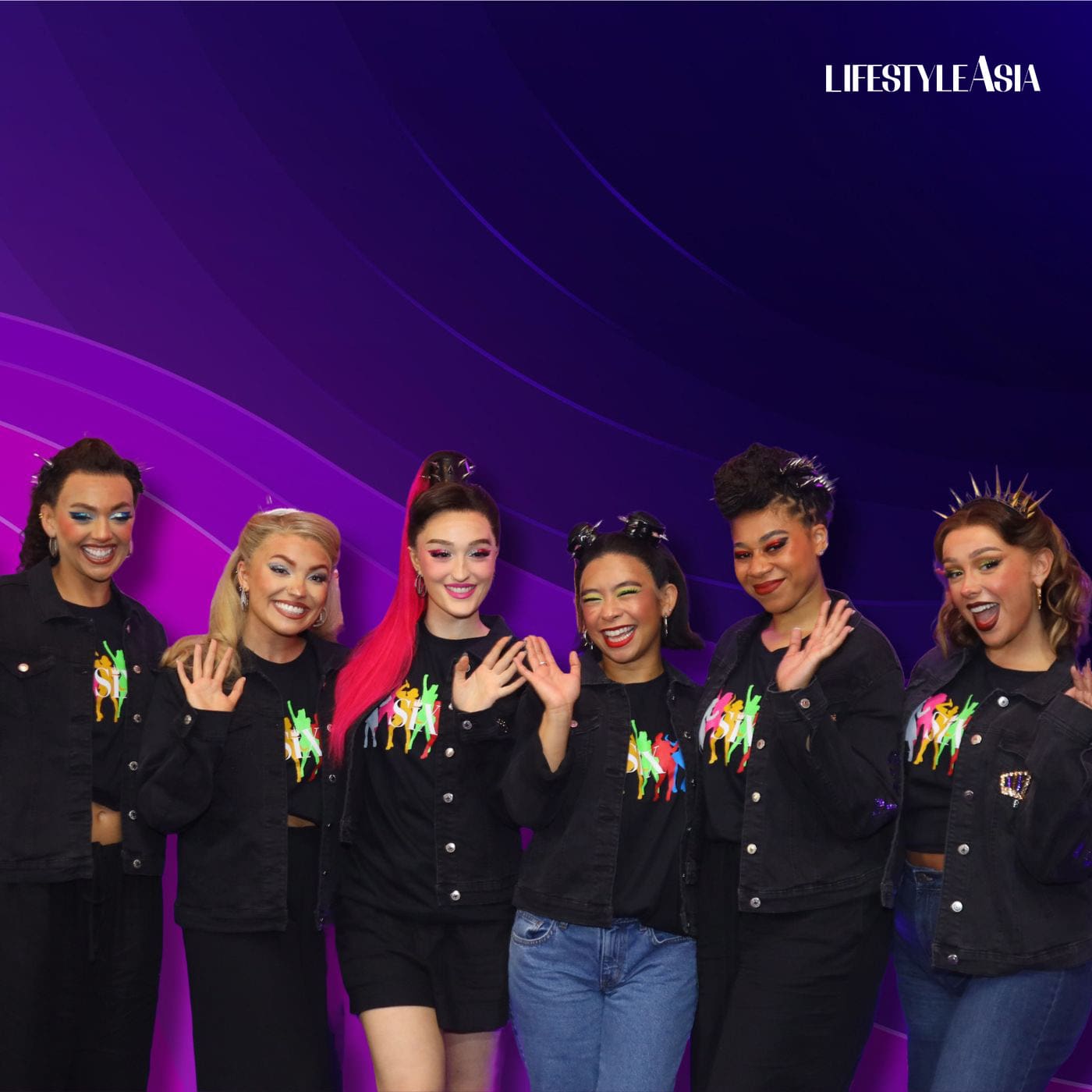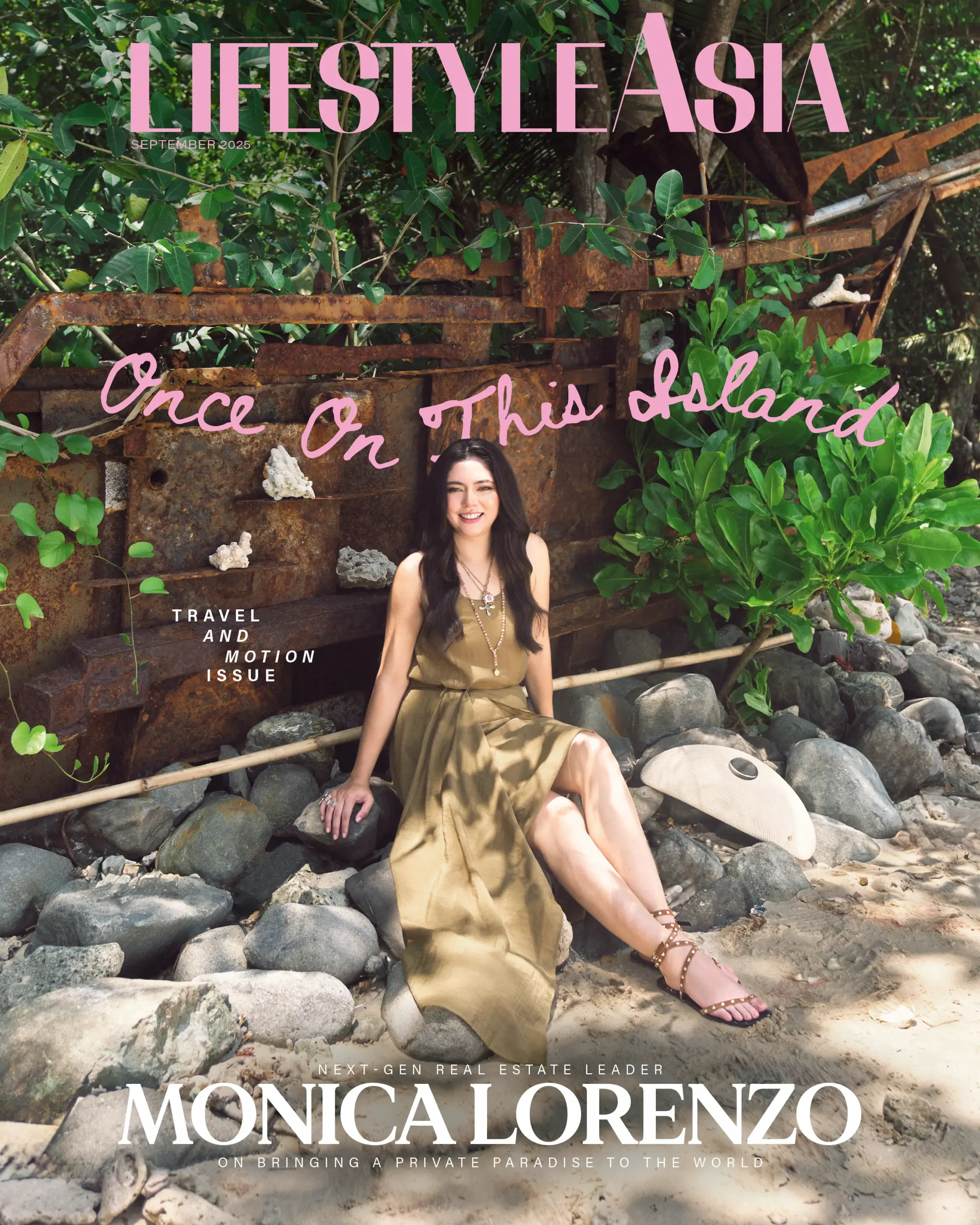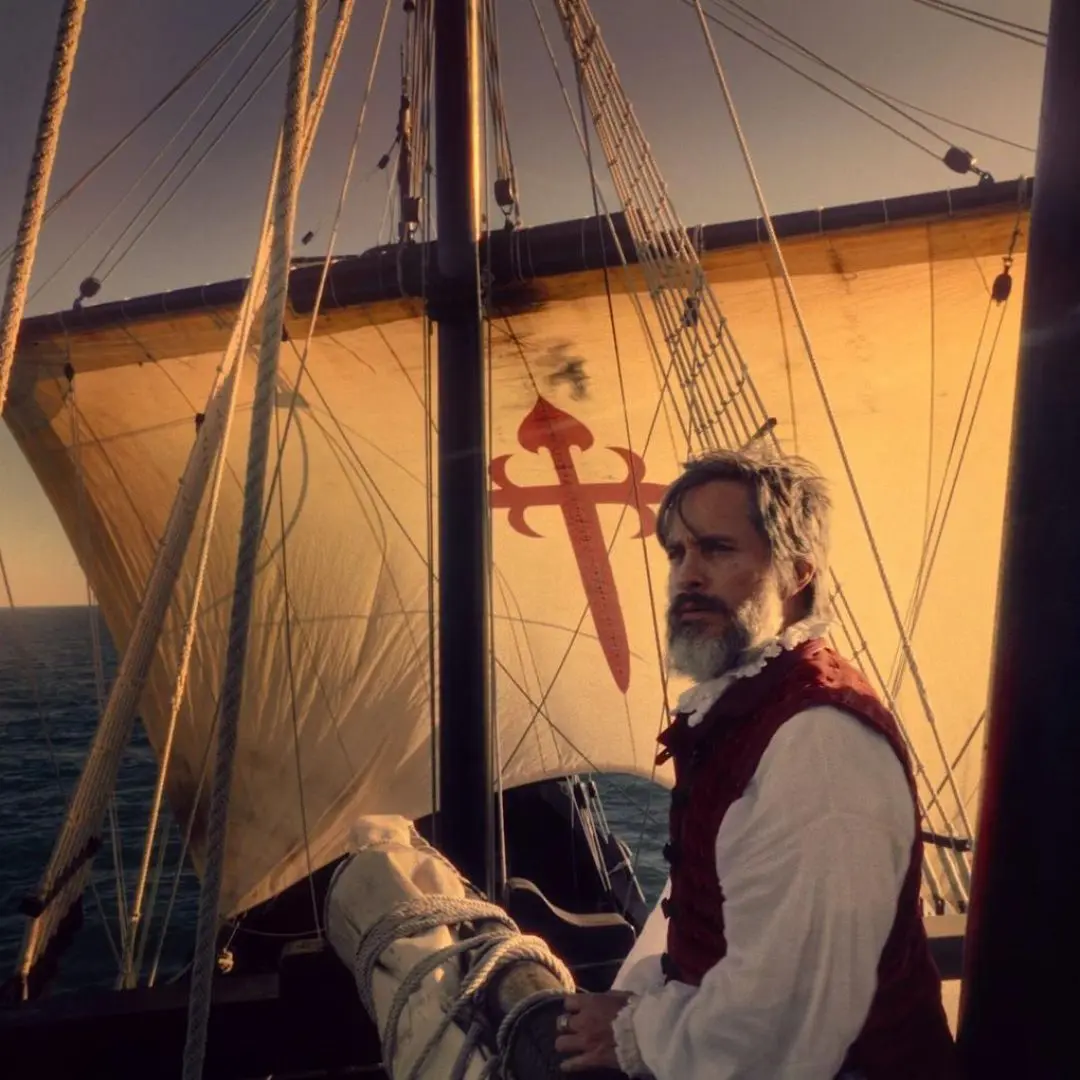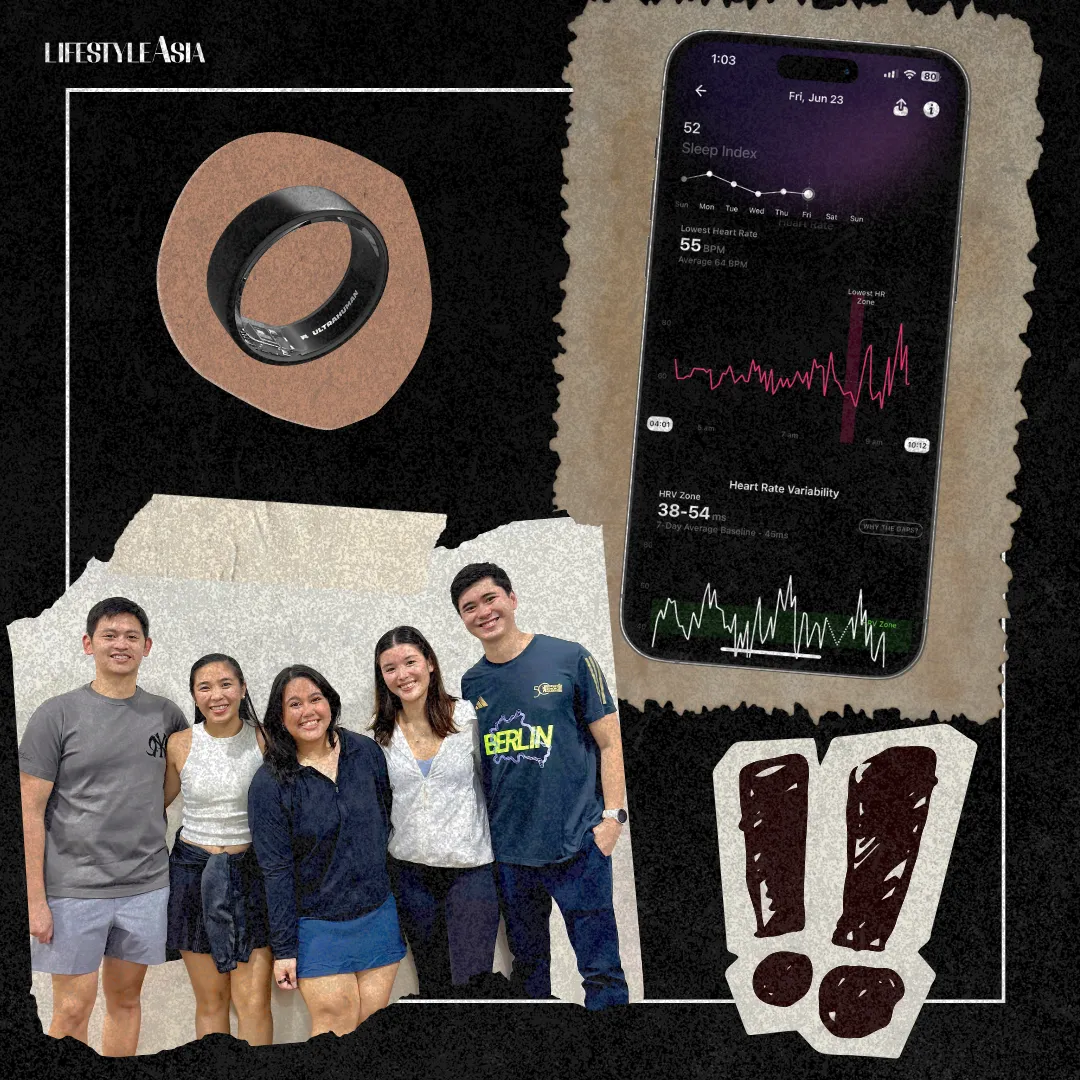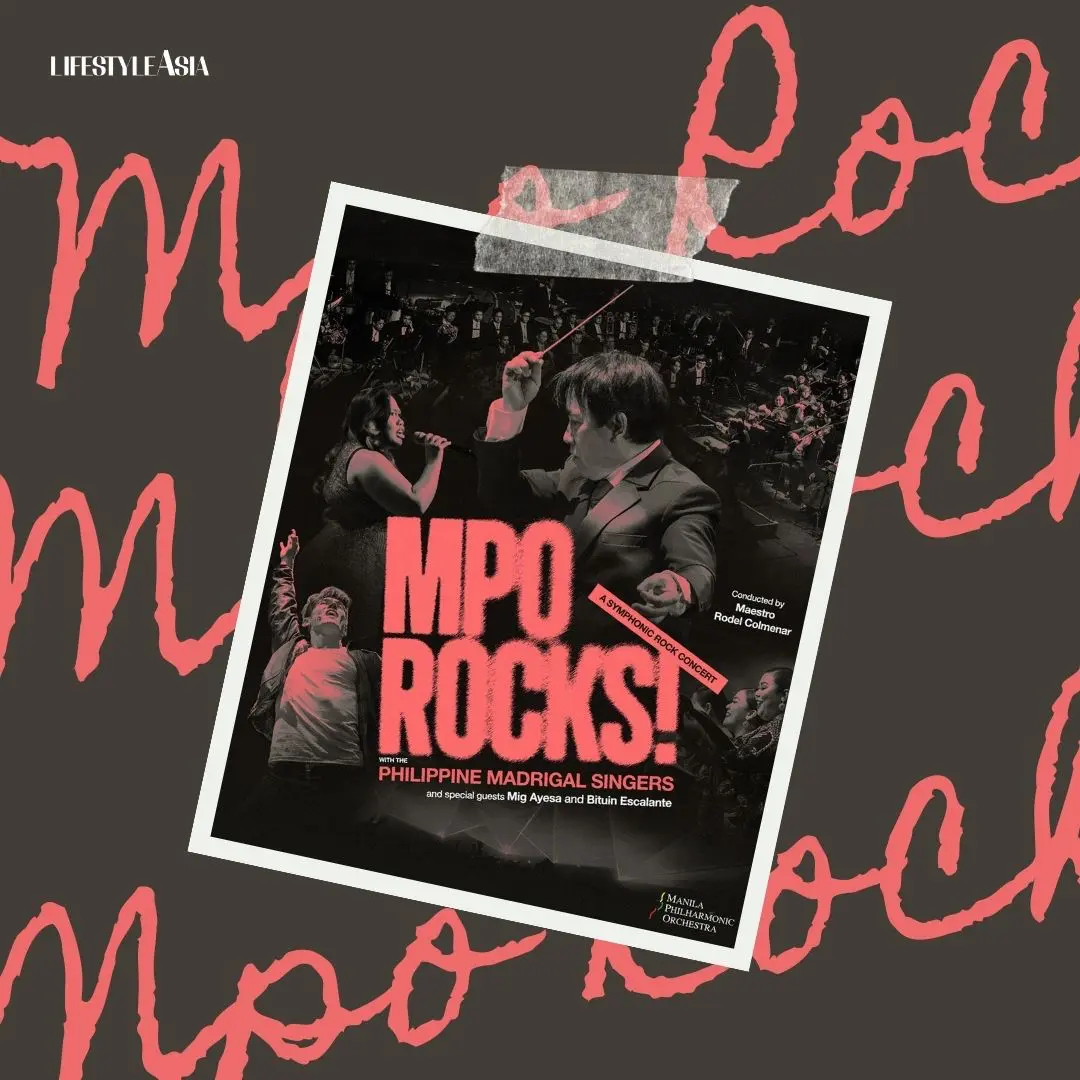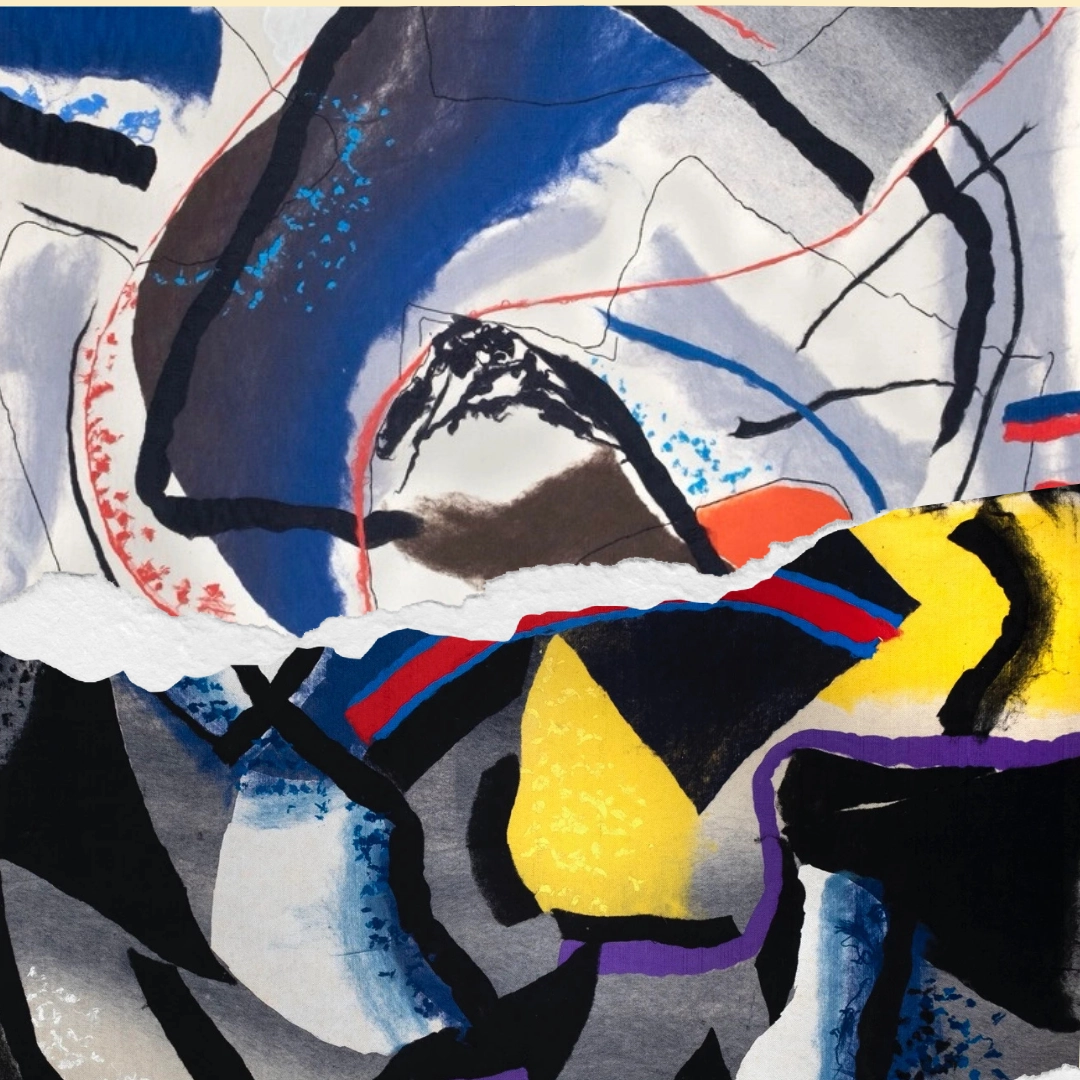The cast of SIX The Musical talk about their respective queens, the value of championing women’s voices, and their own stories of love and perseverance in the performing arts industry.
SIX The Musical received critical-acclaim when it first premiered at the Edinburgh Festival Fringe in 2017. At the time, it was students from Cambridge University who performed in the playful and spunky pop concert-style musical about King Henry VIII’s six wives—also created by then Cambridge students Toby Marlow and Lucy Moss. Its success skyrocketed it to even bigger stages, including West End and Broadway, earning it two Tony awards (one for Best Original Score and another for Best Costume Design under the creative vision of Gabriella Slade), as well as an Outer Critics Circle Award for Best Musical, three from a list of 23 accolades in total.
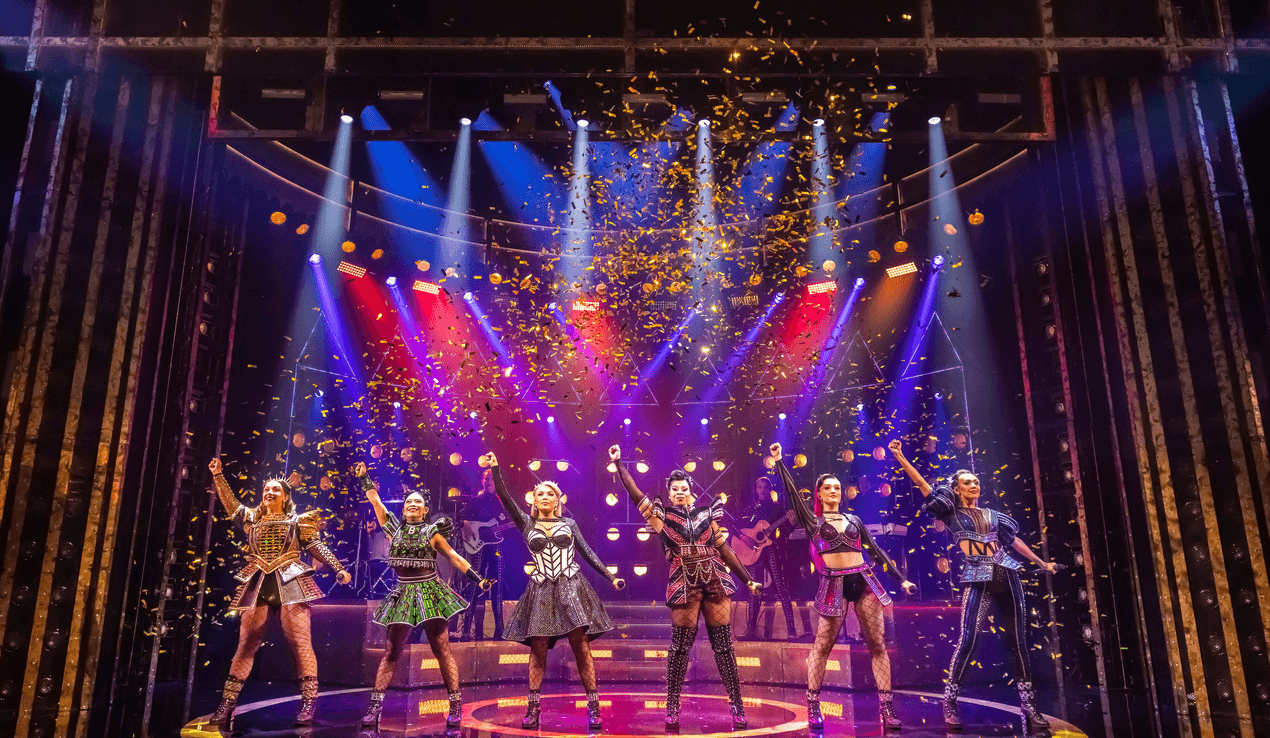
Today, the musical is currently on the Manila leg of its international tour until October 20, 2024. Bringing the vibrant, complicated, and often misunderstood lives of the six Tudor queens to the stage is no easy task, especially in a musical that expertly balances comedy, camp, and tragedy through nuanced acting, witty dialogue, snappy choreography, and powerful vocal numbers. Luckily, the international tour could not have picked a more capable crew with the talents of Billie Kerr, Yna Tresvalles, Liberty Stottor, Hannah Victoria, Lizzie Emery, and Eloise Lord.
Lifestyle Asia had the great pleasure of speaking to these actresses during their downtime, getting to know their thoughts on the musical, their roles in it, and their own careers as performers.
READ ALSO: Backstage Musings: The Miss Saigon 2024 Cast Reflect On Their Roles And Professional Journeys
Billie Kerr
Billie Kerr plays the role of Henry VIII’s first wife, Catherine of Aragon, who history remembers as the devout Spanish princess that was supposed to marry Henry VIII’s brother, Arthur—yet his untimely death would lead to a marriage with Henry instead. She stayed loyal to the king as a model wife despite his infidelities and bore him a daughter amid a slew of miscarriages—though her inability to grant him a son would be a point of frustration for him. He would eventually divorce her in favor of her lady-in-waiting, Anne Boleyn, the second Tudor queen.
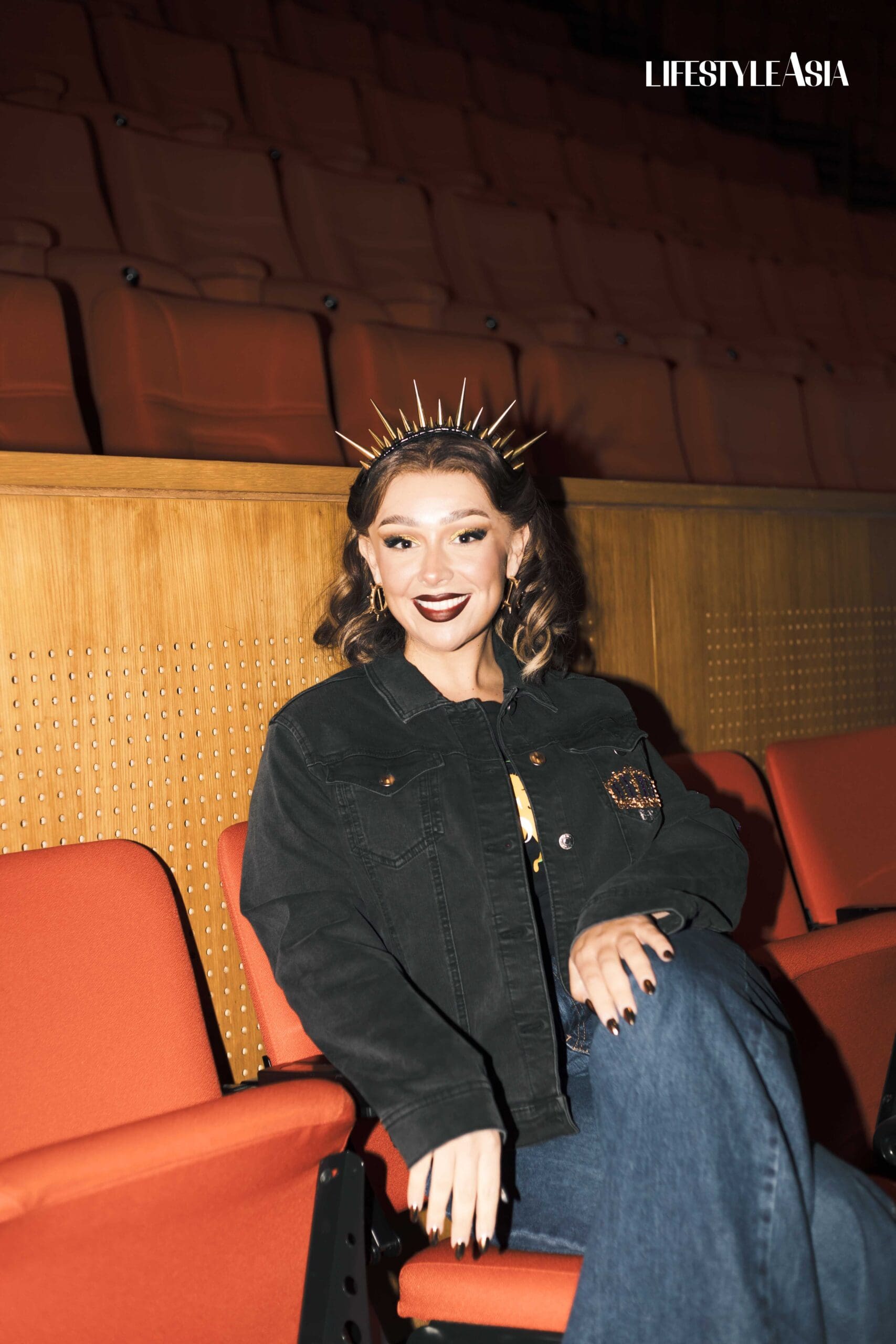
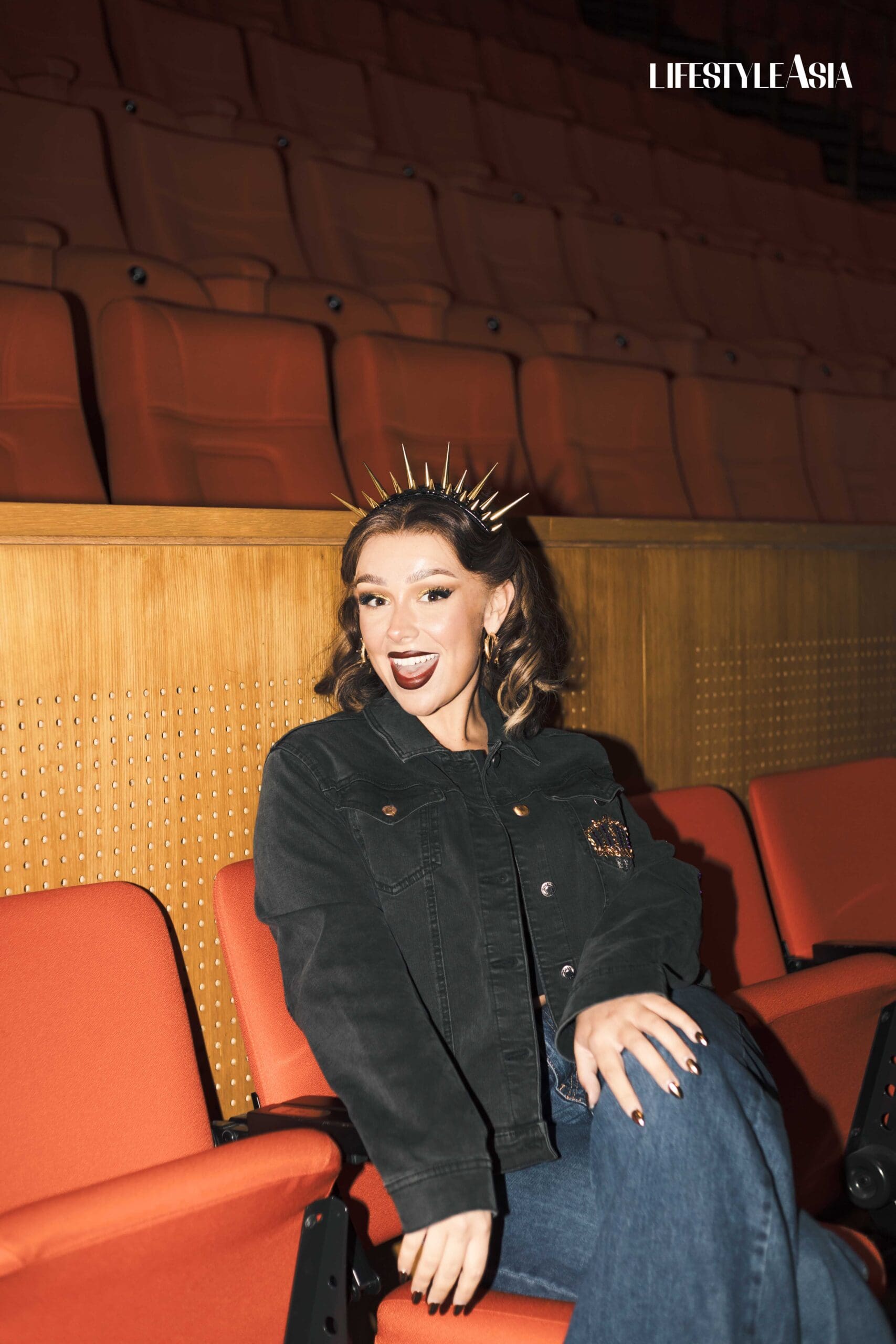
Kerr portrays her character with a steely, willful strength that showcases how she firmly sticks by her principles despite her husband’s many misdeeds, all of this summed up in her catchy song “No Way,” where she refuses to let him divorce and replace her so easily. “If you can just explain/A single thing I’ve done to cause you pain, I’ll go,” she sings, to which there’s no reply—a succinct way of describing Henry’s logic when it came to leaving (or killing) his wives.
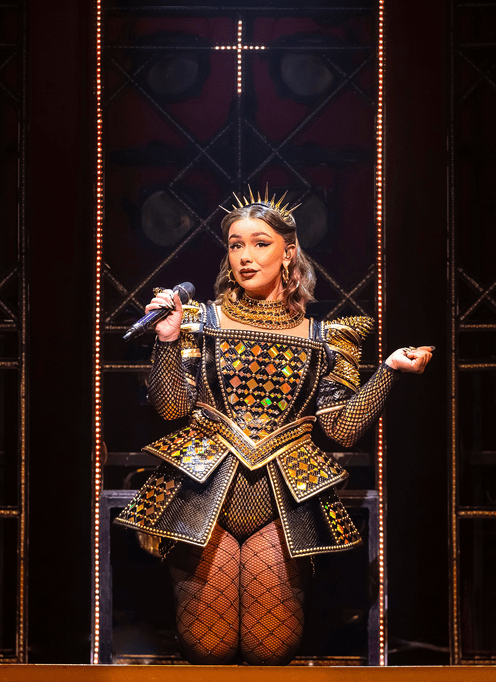
What was it like when you first learned you would get to play a character in this musical?
I was humbled real quick at how hard this show actually is. I think whenever you watch the show, what people don’t understand—which is a result of watching the queen that’s being highlighted in the moment—is that there’s so much going on in the background that people don’t really feed into the first time that they see it.
The choreography is so intricate in every single number, and it takes so much time to like, rehearse and learn the show. Not only is the choreography quite detailed, it’s also layered. So as much as we’re learning the moves, there’s also the acting. The process was so much more thorough than I could ever have imagined.
What song in the musical is your personal favorite and why?
So when I played Jane Seymour [in the Norwegian Cruise Line production of SIX The Musical], my favorite number to do was “No Way” as an ensemble member. It’s so much fun. The song is an absolute bop and a half, and the choreography is something I can really sink my teeth into. I love that house-style. It sits well in my body, and it’s something that I’ve done before.
However, my favorite song, I would say, is “I Don’t Need Your Love” [the song of fellow queen Catherine Parr]. I think Parr has such an important job in this show, to culminate everything that it leads up to and express it at the end. The story that she tells and that song, the journey that she goes on, is so inspiring. I also just like the style, I’m an R&B girl, I love my R&B.
Would you say that you relate to the particular queen you are playing, or are there shared experiences or characteristics that helped bring the character closer to you?
It’s funny because I did not think I had the capacity to play someone as ferocious as Aragon when I first started auditioning for this show. I think when I played Seymour, I could really relate to her character a lot: she’s a huge empath, and there is definitely a side of me that really, really interlinks with what her queen portrays.
When I played Seymour, that’s who I was at that moment. But when I was playing Seymour, I was also watching Aragon. Every time I’d done the show, I was just itching to play her, because throughout that job, my confidence was growing and that ferociousness. She’s unapologetic, she knows her worth, she’s grounded, she’s a fighter. I think that’s the biggest word for Aragon: she’s a warrior, and I’ve had to fight to get to where I’ve gotten to at this point in my life, so I can relate to her in that respect.
I think it takes a lot of gravitas to play Aragon, and I’m so proud of myself, because I feel like I’ve achieved that now, and I think that’s played into who I am as a person. I’m learning a lot from her, and I’m so very humbled to portray her story.
What would you say is the most important takeaway you’ve gotten throughout your career, and how do you think it has helped you become the performer you are today?
Honestly, be kind to others and yourself. I think it’s very easy when you graduate from drama school, to want to say “yes” to everything. There’s so much pressure to be networking, doing the most. I tell you, when I graduated, I was saying yes to all the gigs, all the press nights, everything I could sink my teeth into to get experience, work, workshops, everything. But it was to the point where I’d lost my identity because it wasn’t enjoyable anymore. I was doing too much of it. My life was consumed by it.
It’s important to have an identity outside of what we do. And say yes to something because it serves you, don’t say yes to something because you feel you have to.
And when I say “be kind,” be kind to not just the cast, but everyone. There are so many people that work hard to be able to facilitate a show like this, and I think it’s important to make an effort with everyone and say hello—whether it be front of house or the people that usher you coming through the door, everyone matters just as much as the next person.
Yna Tresvalles
Next is Henry’s second wife, Anne Boleyn, arguably one of the most memorable of the six figures, as her union with the king sparked the English Reformation. This marked Henry’s break from the Catholic Church, which prevented him from filing an annulment with Catherine of Aragon. Much like Henry’s first wife, Anne failed to bear him a son after many stillbirths: he continued to be unfaithful, and eventually accused her of infidelity, ordering to have her beheaded for it.

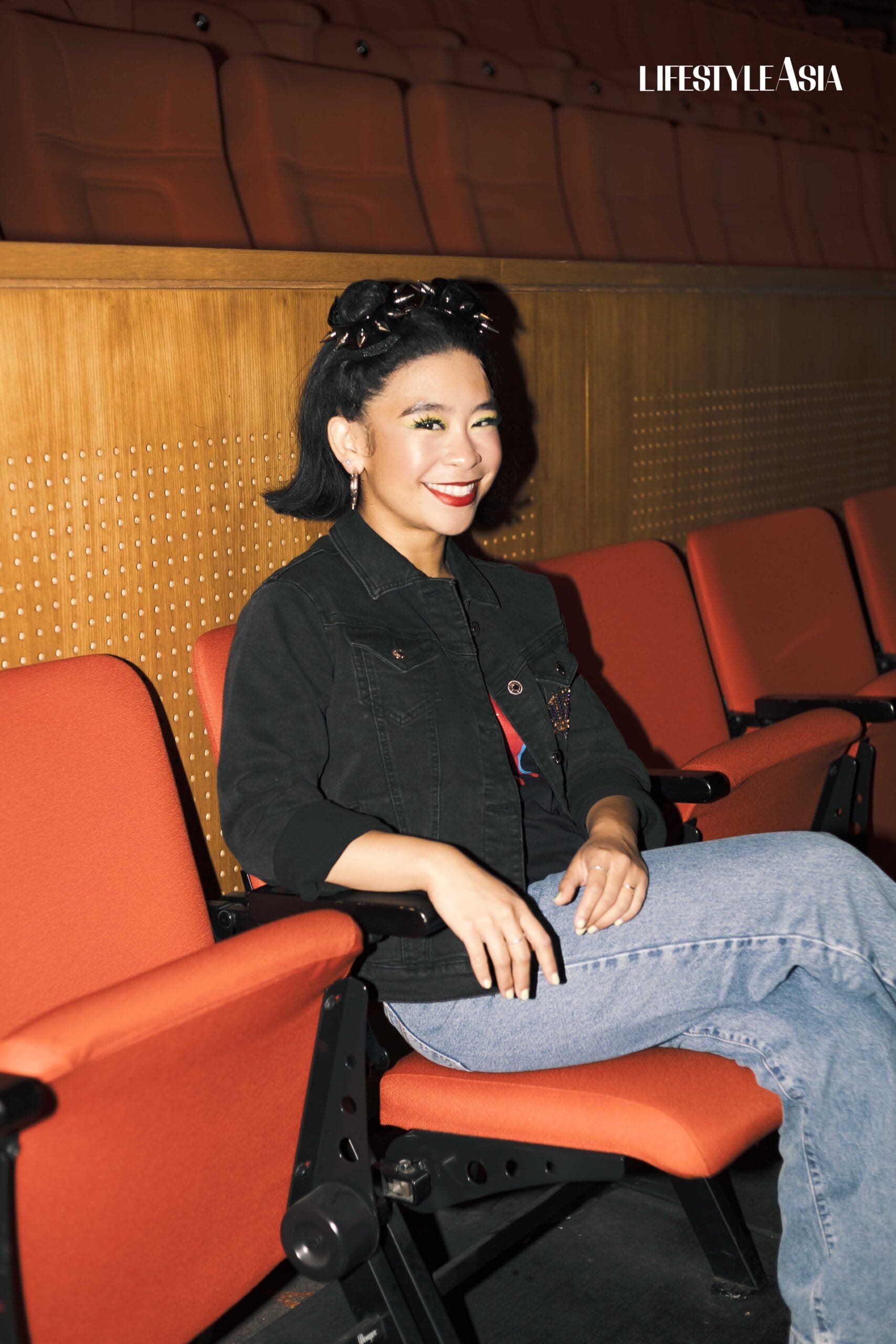
Since then, people have painted her as the philandering wife and first to be executed, though historians question whether Henry’s accusations were completely true or fair. Her song “Don’t Lose Ur Head” pokes fun at this image of hers, which actress Yna Tresvalles sings with a sassy, playful, and unapologetic sarcasm that perfectly exposes Henry’s hypocrisy.
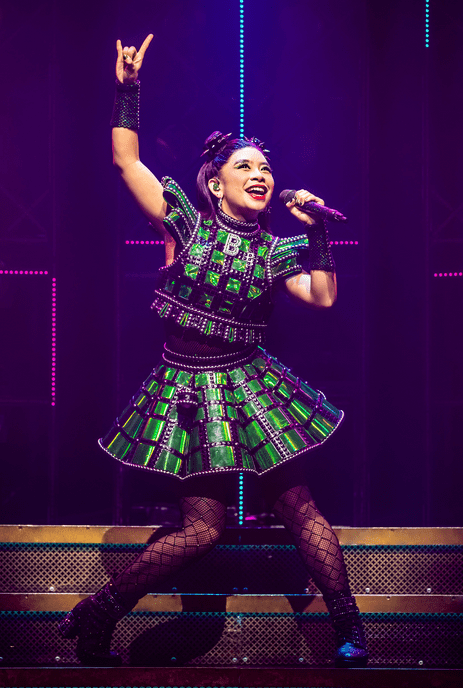
What was it like when you first learned you would get to play a character in this musical?
It was extremely overwhelming, because there’s this moral obligation to do these women justice, to do the audience justice, to share the beautiful intentions of our writers. And it’s such a fun show, but it’s so much heavier that there’s a moral obligation, because these are real people who have been so tarnished by history. You don’t want to get it wrong this time, and you want to treat it with respect and sensitivity. There are so many themes in the show that can really, really upset people.
So when I found out about this role, not only was I so excited and grateful to get the opportunity, but I thought ‘Okay, now you put on your big girl pants and you take this seriously,’ because it’s not just a job at that point. It’s a life’s work you’re taking on: you agree to put your ego aside and make it about these women.
What song in the musical is your personal favorite and why?
I remember when I first listened to the soundtrack album, I was walking to school and “Six” came on. I was about three minutes away from class, then I walked into it sobbing my eyes out. There’s a moment in Katherine Howard’s verse, where she goes: “Now all I do is sing, and I’ll do that until I die,” that moment just encapsulates every want that women have and the ways that they’re so robbed of it.
I love performing that number. I love listening to that number. I love seeing other people listen to that number. I cry to it all the time. And when I sing that song, I think of all the women in my life that wish they could have rewrote their stories, but still made the best of what life gave them. And think about how I wish every single one of them got to do a verse on that stage.
Would you say that you relate to the particular queen you are playing, or are there shared experiences or characteristics that helped bring the character closer to you?
It’s really fascinating to learn about Anne Boleyn’s real life and the decisions she made, and how little we know about the motivations behind every single one of them, from convincing King Henry to leave the Catholic church to being comfortable being a mistress for three years.
The version of her that’s in this show, people love and find entertaining: she’s opinionated, she’s vulgar, she says things before she thinks, and she’s comfortable being the comedic relief. That’s really lonely for her, knowing that she’s feeding the audience what they find funny. But she’s comfortable being alone. She’s comfortable knowing that she’s upset the other queens, that she’s used and objectified by history more so than the rest of them. She’s immortalized forever as “the other woman,” and that’s an awful, awful thing to be remembered as. But in this version, she’s okay with that.
And so when I stepped into that role, it made me feel very uncomfortable, because in my own life, I’m usually the butt of every joke. I usually feel lonely knowing that people are laughing at me instead of with me sometimes. People find it funny instead of endearing that I’m the way that I am. But this show has given me a lot of inspiration through those parts of her that people laugh at and find silly and stupid. She knows that, and she’s not going to change who she is. She’s okay with people making fun of her, she’s okay with people bastardizing her, because they don’t know her full story.
I feel really seen by her, and I don’t feel embarrassed anymore about the parts of me that are really loud and like, miss the mark sometimes. I love that she’s funny, I love that that’s powerful. I love that it makes people uncomfortable, and she’s still okay with that, because it’s made me really love that part of myself and love all the people that feel drawn to it, instead of scared of it.
What would you say is the most important takeaway you’ve gotten throughout your career, and how do you think it has helped you become the performer you are today?
I grew up in America and I left my family to go to college: it’s been really hard, and I feel like if I really tried, I could find so many ways in which I’ve lost and sacrificed so much of what I love to do this job. I’ve missed so many important parts of my life, like family events, not seeing people that I love for months and months at a time. That’s gotten really hard, but I try to look at everything with a sense of gratitude.
I’m a religious person, and I really believe that God is taking care of me, and there are so many things about my life to be grateful for. And so when the industry is hard and it feels like things aren’t going your way, and you’re exhausted and tired, you don’t want to do that thing because you’ve had a lack of sleep or missed some big family event so far away, I try hard to remember that I’m so grateful for everyone in my life that has taken care of me when I’ve been lonely.
So what I would say is, take every sunny day and kindness from a stranger, every funny moment that happens with a fan: do not take any of it for granted, because you have no idea what life is going to throw at you next. Those beautiful, tiny moments are what I try so hard to be present for.
Liberty Stottor
Halfway through Henry VIII’s roster of wives is Jane Seymour—the queen that many believe was the only one he “ever loved.” Though this fact might have everything to do with the fact that she gave him his first male heir, Edward VI, yet tragically died from childbirth complications.
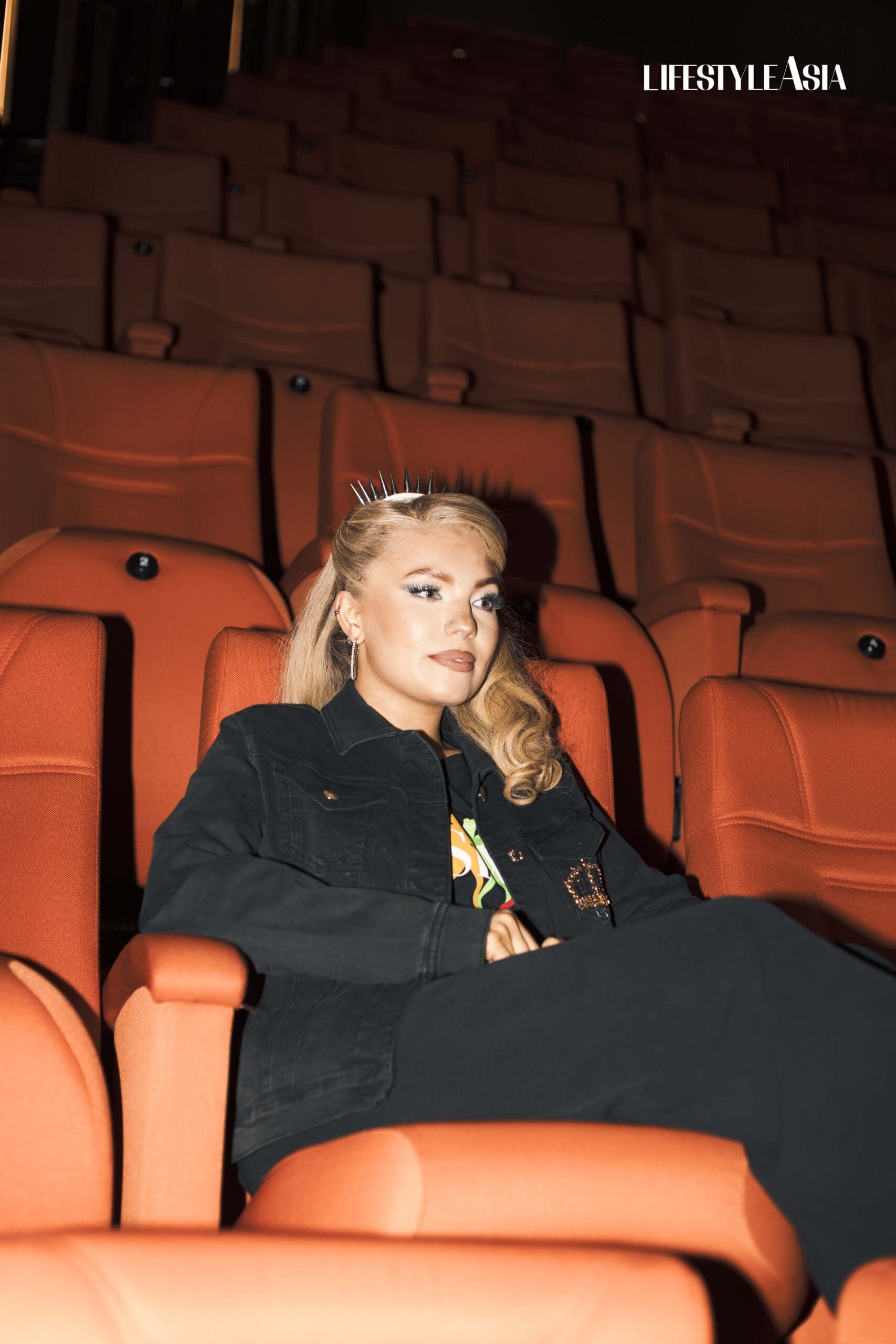
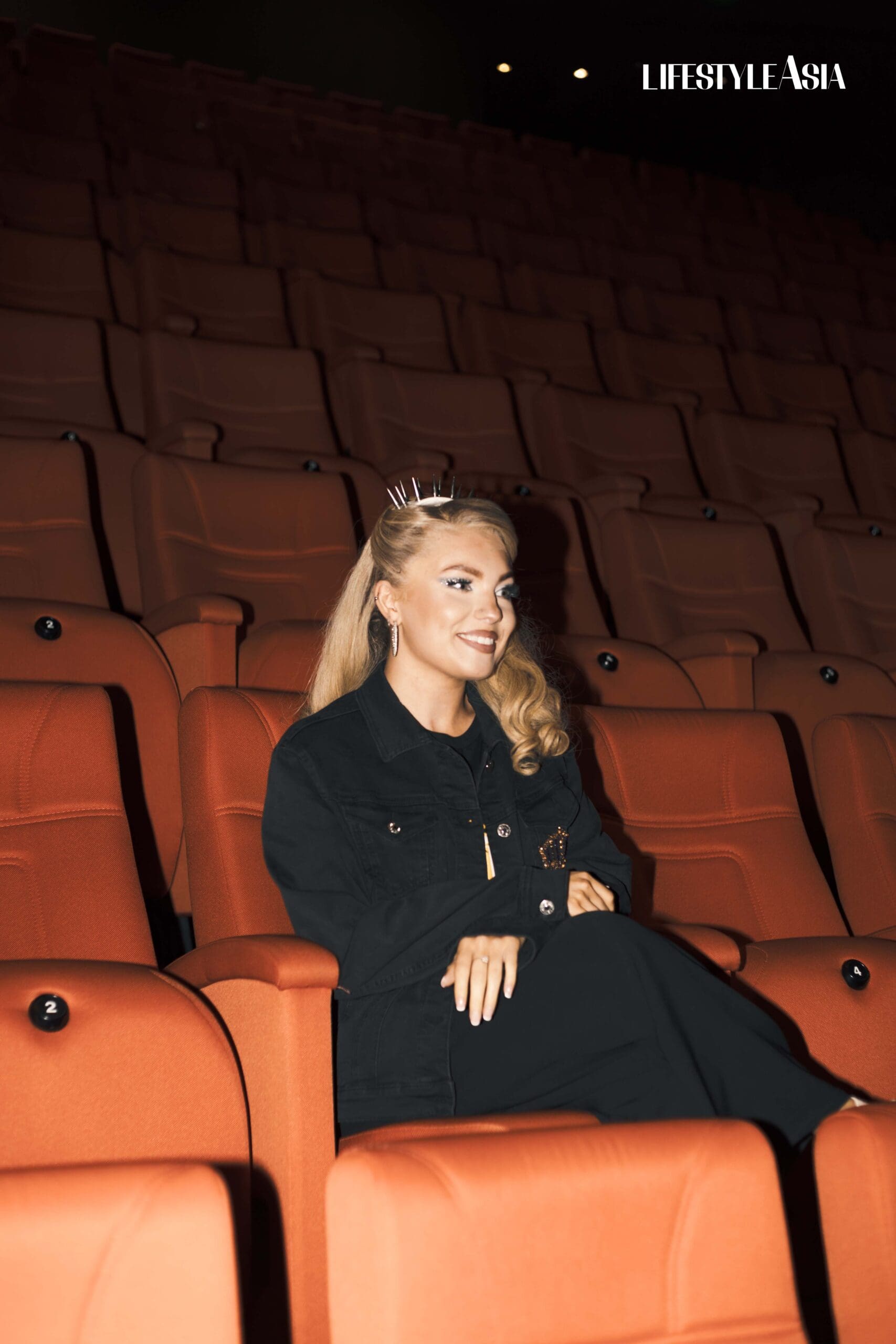
The musical doesn’t fail to point out that Seymour had it fairly easy compared to the previous two queens, at least in terms of winning Henry’s affections and finally bearing a son. Yet actress Liberty Stottor gives great depth to the character, delivering endearingly corny and dry “mom jokes” with aplomb. Through the gut-punch ballad “Heart of Stone,” she manages to express the pain that comes with loving deeply and ceaselessly despite Henry’s mercurial nature, as well as not being able to see her son grow up.
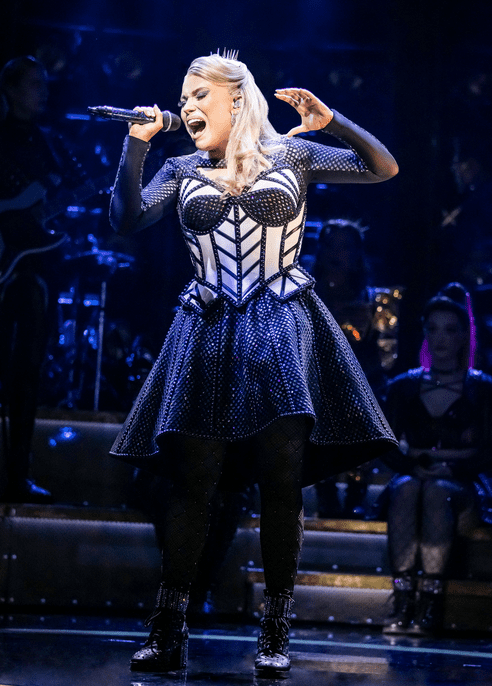
What was it like when you first learned you would get to play a character in this musical?
I knew it was going to be a challenge, but I could not have anticipated how much of a challenge—mentally and physically, emotionally—that it actually is. It’s a lot tougher than I think you are prepared for, in the best way possible. I have learned so much from the process, not just about the show and about the queens, but also about what I’m capable of as a performer as well.
I think I can speak for all of us when I say that when we first went into the process, it was like “whoa.” There’s so much to learn and to sort of get to grips with, in a way. And I think it’s been an amazing challenge.
What song in the musical is your personal favorite and why?
If I’m completely honest, when I first heard the soundtrack, “Heart of Stone” was my favorite. I felt like it was the most “me” of the soundtrack.
But having done the show, there’s something about the number “Six” that I just love. I find it so powerful, telling what could have been for these queens. It’s when we all come together in the show. I think it’s a really important song that I absolutely love performing. I look forward to it every night. It’s the whole beginning bit, when we first start, after the first chorus. It just brings you so much joy.
Would you say that you relate to the particular queen you are playing, or are there shared experiences or characteristics that helped bring the character closer to you?
I think with Jane Seymour, I relate to her maternal and caring nature. But she also reminds me that to love is so powerful, and I think I’ve got a lot of love to give, and so did she. Sometimes it can sort of be overlooked, how powerful it is to love and to be loved. Especially in “Heart of Stone,” like she sort of has this whole big explosion, this battle cry at the end of the song. She just wants to be listened to and be heard.
Her story is heartbreaking as well, because dying after childbirth and not getting to see her son grow up is heartbreaking. I can’t even imagine that, but I think I relate, especially to her wanting to break free and sort of stand up for herself a little bit more, and that’s just how much she loves, really. If I’m honest, I think that’s how much I take from her, and how powerful it is to be vulnerable as well, especially within the show.
She’s got a lot of moments of mum jokes. [laughs] I think there’s a goofiness to her as well, which I feel like I also have. I think the way she carries herself throughout the show is very different to how I originally thought I would portray her. I learned a lot from the process in regards to that, which I also think is really interesting.
What would you say is the most important takeaway you’ve gotten throughout your career, and how do you think it has helped you become the performer you are today?
As cliché as it sounds, I think it’s so important to be yourself. Bring who you are to your work, especially with this job. Listen to yourself, listen to your body, listen to your mind. And you know, when things are getting too much or your brain’s getting too loud, it’s so important to sit back and take a minute to remember why you’re doing it in the first place and to relax a little bit.
We put so much pressure on ourselves, I think especially in this industry, to be on top of our game all the time—and it’s physically impossible, and you need to give yourself rest, and you need to grant yourself some grace sometimes. You’re not gonna be 100% every minute of every day. It’s just not possible. But I think it’s best to remember that if you’ve only got 50% to give that day, then that’s your 100% for that day, and that’s more than enough.
Remind yourself of who you are and how hard you’ve worked to get to where you are, and that realistically, it’s no big deal at the end of the day.
Hannah Victoria
Henry VIII’s fourth wife, Anne of Cleves, made her mark in history for being the “ugly” queen that supposedly catfished the king—upon meeting her, he was shocked to see that the German aristocrat looked nothing like her portrait. This will become a central joke in her post-divorce song “Get Down”: “You said that I tricked ‘ya / ’Cause I didn’t look like my profile picture / Too bad I don’t agree / So I’m gonna hang it up for everyone to see.”

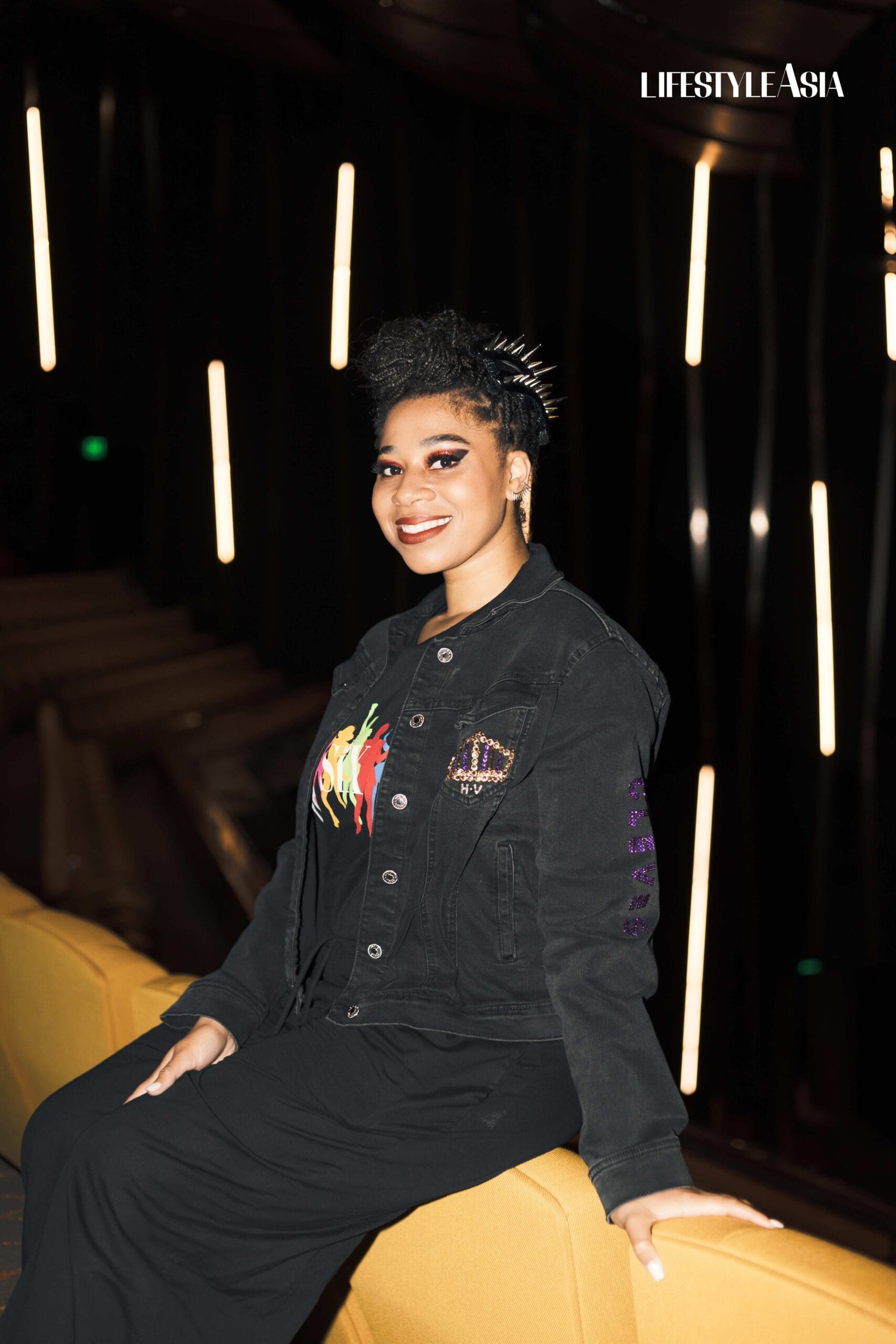
This confident, tongue-in-cheek tone is what characterizes the fourth queen, who happily admits that she led a pretty good life in spite of—or perhaps because of—her and Henry’s divorce. Anne of Cleves accepted their separation with a generous settlement, living a comfortably lavish life until her death. Through her bold and hilarious performances, actress Hannah Victoria makes certain that audiences can see how much fun her queen is having with her riches and power, carefree as she dances away and does what she pleases. Amid the sadness or downright dark endings surrounding the king’s wives, her segment is a comedic and empowering respite that not only balances the tone of the musical, but also hints at how liberating life could be for the queens without Henry VIII’s attention.
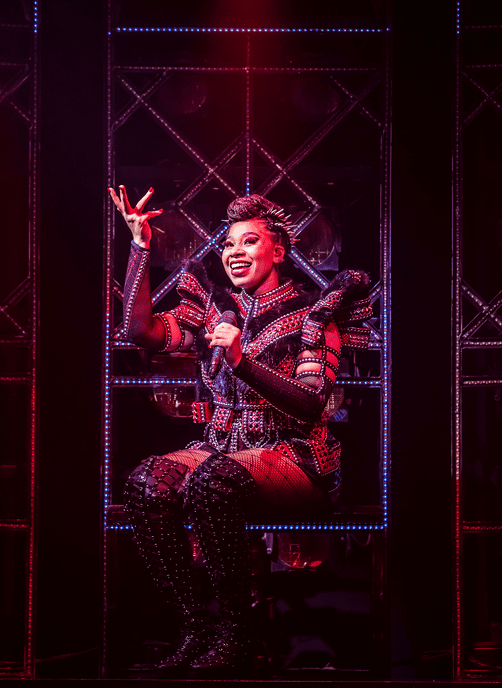
What was it like when you first learned you would get to play a character in this musical?
I was so excited, but also overwhelmed, because the show is massive, and I don’t think I fully understood how big it was. That kind of added more pressure onto it. Like what Yna said, pressure not to get the stories of these real queens wrong and telling them correctly, but also pressure on probably all of us to just be amazing.
We are all so talented, but sometimes you just get the doubt that “This isn’t going to be good.” Like in the rehearsal process, there were a lot of times where we had to come together and we really spoke about each other’s stories. Some of those days were overwhelming and tough, lots of tears. Other days it was like, “Yes, we’ve actually done it!” With all the stress, all the hard work, we’ve actually done it.
We were constantly being resilient in everything that we did. So it’s been a great time so far, I’m absolutely loving it. All the different personalities that we’ve got in the room; everybody brings a little flavor here and there, and it’s exciting. I can’t wait to see what else happens in this tour.
What song in the musical is your personal favorite and why?
It has to be “Get Down,” because it’s just so fun and energetic. I feel like it’s just electrifying. The girls have all got my back, it’s kind of the same with “No Way,” like in the start of the choreo when [Catherine of] Aragon walks across the stage with the head nods, it’s like, “Yeah, we’ve got you.” This time we tell Henry to shush, the choreo is like “Be quiet. This is our time. This is Aragon’s time.” We’ve just all got each other’s backs, and in those two songs, the sisterhood is 100% top tier.
Would you say that you relate to the particular queen you are playing, or are there shared experiences or characteristics that helped bring the character closer to you?
Cleves is very fierce, powerful. She’s confident. And sometimes I don’t feel like I’ve got that. So I’ve kind of learned from researching her, and she’s actually brought some of those qualities to myself, if that makes sense. I can be quite like in my shell sometimes, and I’ve realized on that stage, there’s no time for her to be in her shell, she’s just fierce. And I would like to be like that all the time, but I cannot. [laughs] She’s also very chill, laid back, and I feel like that’s very much me; and she’ll always be there to fan the flames of the queens.
What would you say is the most important takeaway you’ve gotten throughout your career, and how do you think it has helped you become the performer you are today?
The industry is so cutthroat. It’s mentally and physically draining doing constant auditions, wherever you live in the country. Just having to be prepared for being in the room for maybe five minutes, and it’s going to be a quick “yes” or “no” decision. You have to be resilient. Because if you’re not resilient, then you kind of just fall into a pit, which is what I did, and I almost quit musical theater basically, because it was just so challenging.
But we have to remember that we’ve got this when we go into that audition room. Be yourself, you’ve perfected your craft. Now it’s time to show the talent that you’ve got and enjoy, don’t be scared. What I realized is the panel just wants the best for you. They want to see you shine in that audition room, within those five minutes that you’ve got. It’s so rewarding when you stand on that stage, because there’s a lot of rejection. It’s like 90% rejection in this industry, and 10% you’ve actually got the job. So being resilient is a must.
Lizzie Emery
Then there is Henry VIII’s second to the last wife, Catherine Howard [which some sources, including the musical, spell as “Katherine”]. She was the second and final wife that Henry ordered to be beheaded, and much like Anne Boleyn, it was on the basis of her supposed promiscuity. The fifth queen was Anne of Cleves’ lady-in-waiting, before a much older Henry took interest in her and made her his wife. Fond of her spirited nature, he called her his “rose without a thorn” and took care of her until he found out about her affairs. Two before her marriage—with music teacher Henry Mannox and secretary to the Dowager Duchess Francis Dereham—and another after becoming Henry’s wife, with Thomas Culpepper (a Gentleman of the King’s Privy Chamber).
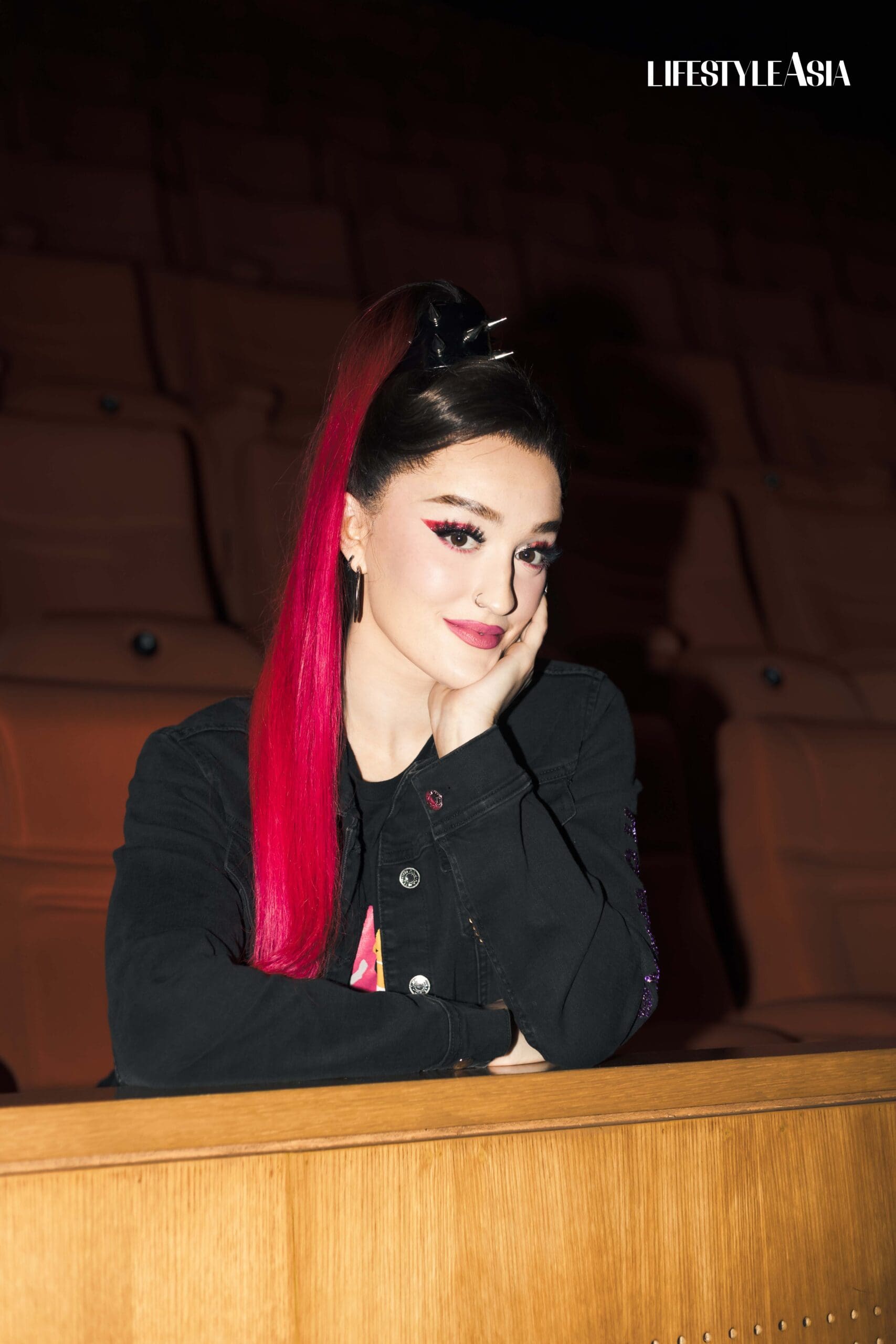
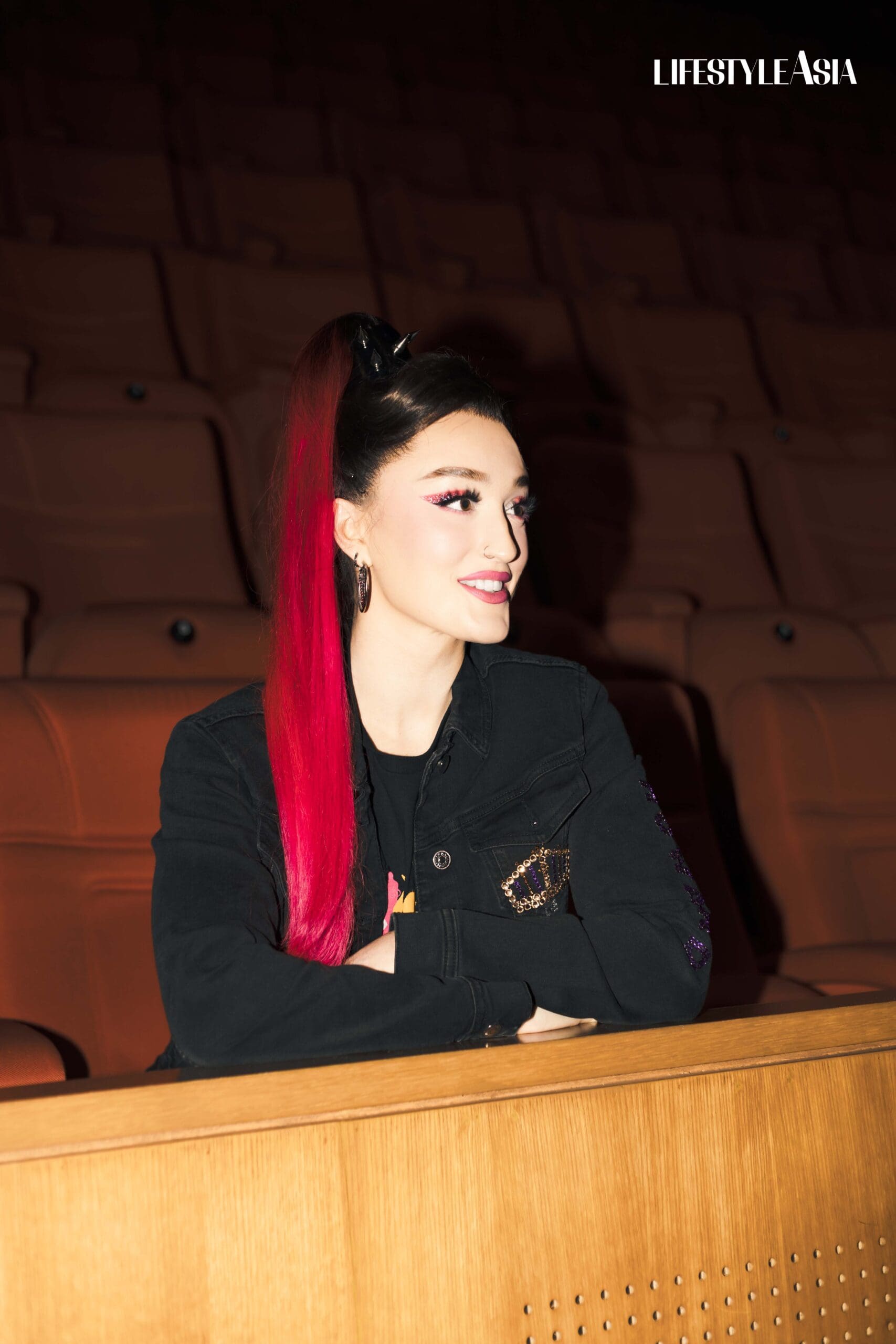
All these affairs, including her relationship with the king, are captured in great detail through her song “All You Wanna Do,” which actress Lizzie Emery executes with a sultry bravado. The song sounds like an empowering one, as Howard proclaims she’s a “10 amongst these threes,” singing: “Ever since I was a child I’d make the boys go wild.” But things aren’t as they seem when the song ends on a chilling note, and Emery depicts a more vulnerable side to a woman who was likely groomed and sexualized her whole life, stuck in an endless loop of loneliness. It is worth noting that Howard was around 12 when she began her affair with a much older Mannox, and this would be a pattern until her beheading somewhere between the ages of 18 to 21 years old.
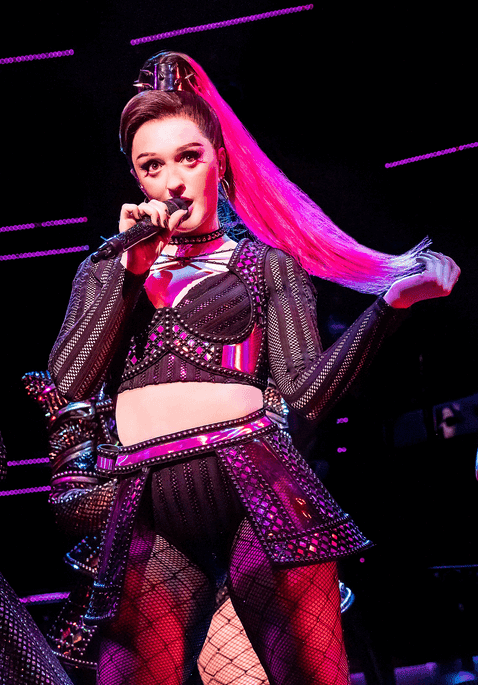
What song in the musical is your personal favorite and why?
Oh my gosh, this is really hard. I think for me personally, on stage, the number I have the most fun doing is “Get Down,” anytime we do the chorus and we’re all together. It’s amazing. It feels so good. But actually, I remember the first time I listened to the SIX The Musical soundtrack years ago, the first song that I listened to where I was like “Oooohh!” was “No Way,” because some of the lyricism and puns are just outstandingly good. I think “No Way” is such a vibe.
Would you say that you relate to the particular queen you are playing, or are there shared experiences or characteristics that helped bring the character closer to you?
K [Catherine] Howard, you really have to approach her with a lot of trepidation. Her story is intensely sad, to be killed at the age of 21 for just being young and naive and being easily led by the men around you. It’s really heavy to bear the weight of her story, but I’m so happy that I get to tell it because it’s really important.
I think she has become a voice for for child abuse, for sexual abuse, for so many people around the world that come and watch this show. She’s handled so delicately and portrayed so powerfully, I’m fortunate enough that I can’t relate too heavily to her story. But there are a lot of people that can, so to be given the honor of telling that story and speaking to people that can relate is amazing. She was really just brought down by all the men around her and let down by them. And I just wish things had gone differently for her, but they didn’t. So it’s our job to make sure that people know how amazing she was.
I also feel like K Howard is the kind of girl who’s favorite movie is 10 Things I Hate About You. And she reads A Court of Thorns and Roses [a fantasy romance book by by Sarah J. Maas], and she’s really into romcoms and romance. She just wants to be loved, and her biggest goal in life is just to find true love. And I feel like that. I see a lot of that in me as a teenager, I see a lot of that in me. She just wanted to be loved, and the people around her took advantage of that.
What would you say is the most important takeaway you’ve gotten throughout your career, and how do you think it has helped you become the performer you are today?
I think the most important thing when you’re a performer, when you’re working in this industry, is to always remember that you are a person first. This industry can be really tough, tiring, hurtful, and really disappointing at times. As amazing as all the good stuff is, the highs are really high, but the lows can be really low.
For me, it’s really important to remember I exist as a person and a human being. I’m not just a vessel for musical theater to come out of, and it just keeps me grounded, keeps me interested in other things. Our director used to say this in rehearsals: “Life comes first. Life is bigger.” As much as I love my job, I love what I do, and I wouldn’t change any of it, I think having the mindset of “I’m an actor, but I’m also a person” has gotten me through some really difficult times actually.
Eloise Lord
Last but certainly not least is Catherine Parr—Henry’s final wife, known by many as the one who “survived,” having been with him until his death. Though she acquired the reputation of being Henry’s dutiful caretaker in his very old age, she was so much more than this. A published writer and scholar, she advocated for women’s education and was a caring stepmother to Henry’s children.
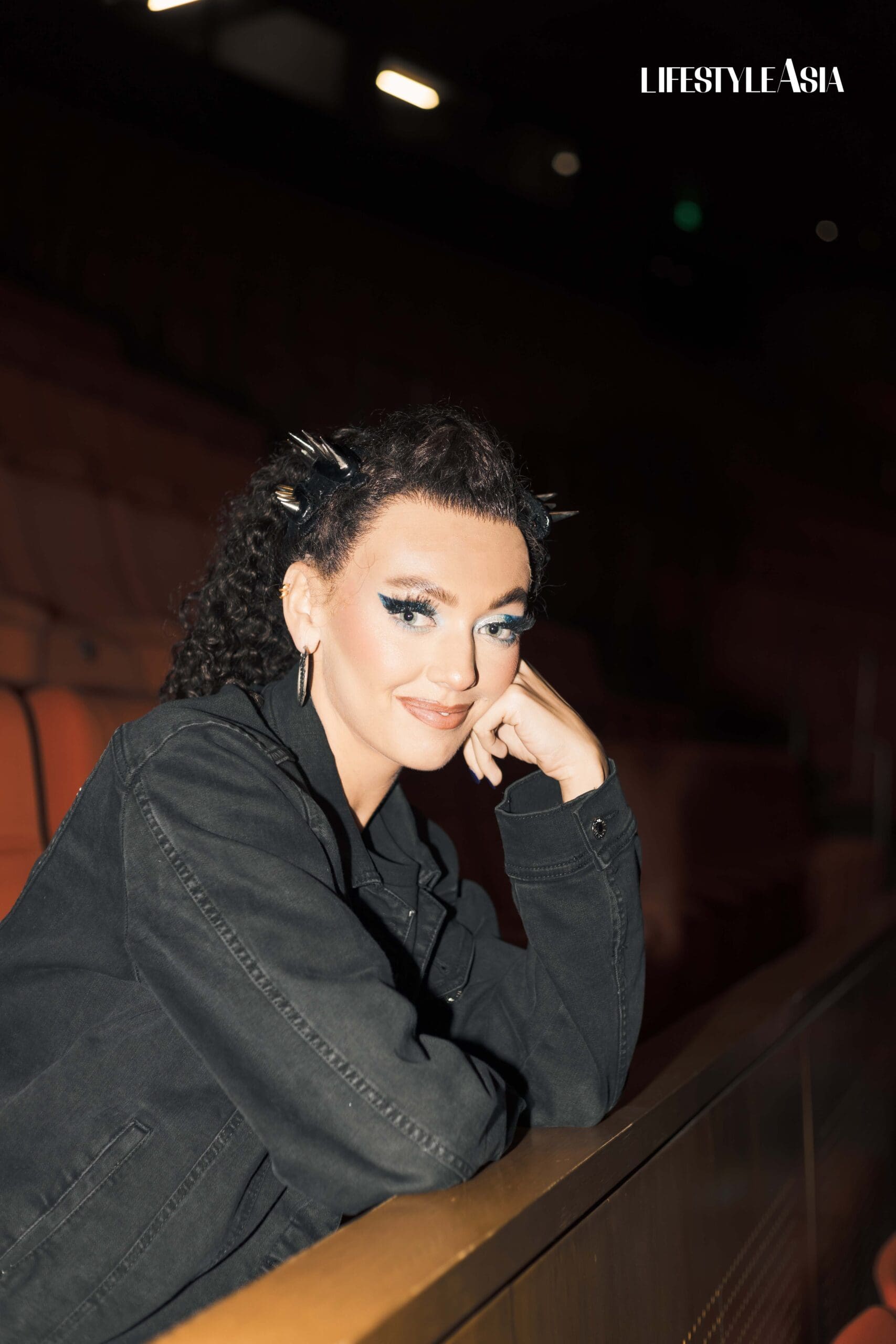
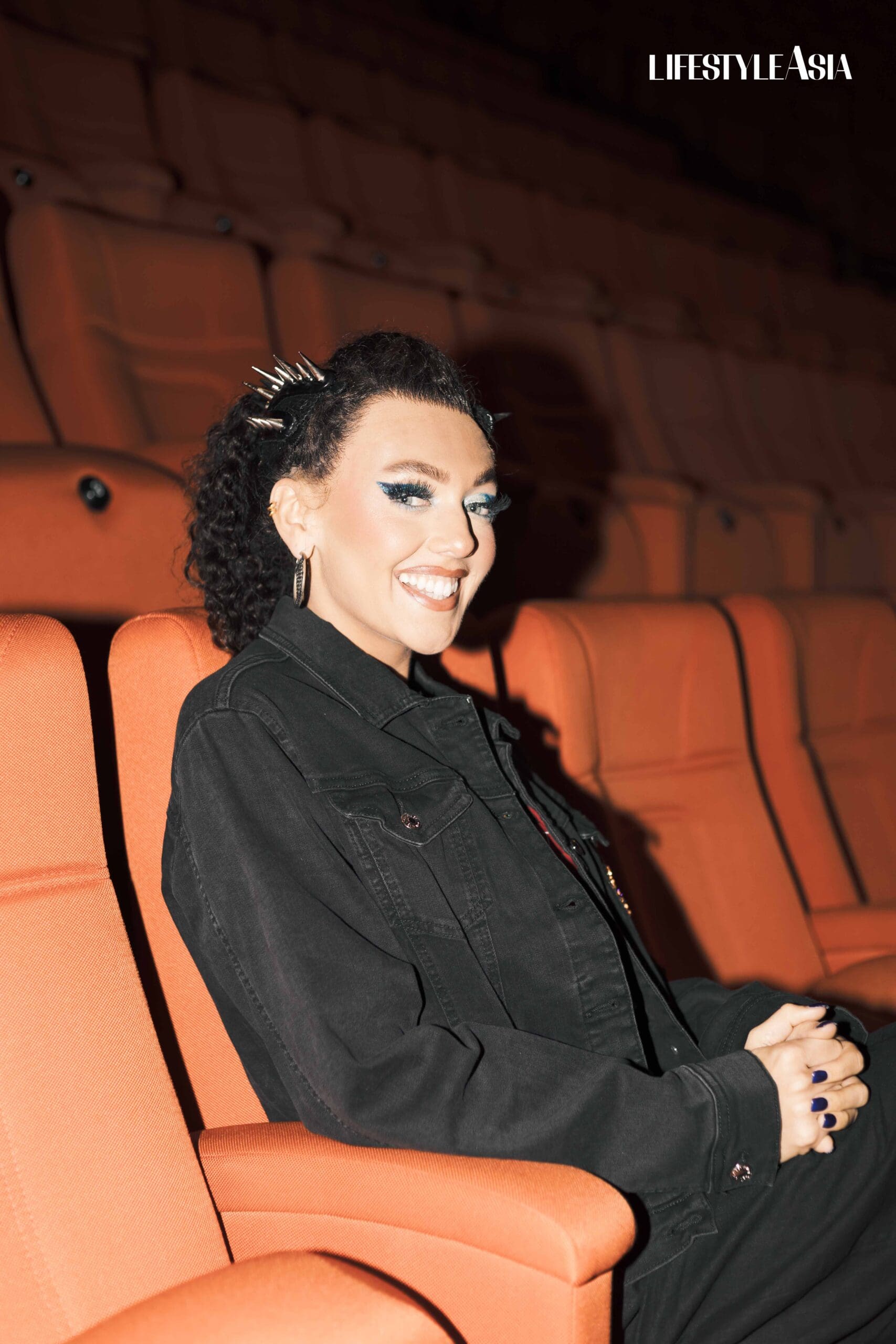
Parr’s marriage to Henry was also not her first, as she was widowed twice before that, married to Sir Edward Borough and then John Neville. She then fell in love, perhaps for the first time, with Thomas Seymour—Jane Seymour’s charismatic brother. However, while she was set on marrying him for love, Henry VIII also took notice of her and chose her to be his wife. Back then, saying no to the king was not something a person could do so casually, and so Parr agreed to the arrangement. It wasn’t until Henry died that she finally got to marry Seymour in secret.
Actress Eloise Lord brings a quiet strength and wisdom to the final queen, her line deliveries and singing gentle yet firm as she explains the pain of sacrificing her relationship with Seymour, all while proudly pointing out her notable accomplishments beyond being Henry’s wife through the R&B number “I Don’t Need Your Love.”

What was it like when you first learned you would get to play a character in this musical?
It’s so rewarding. It’s the most rewarding show I think I will ever do. I don’t think there is any other show where you dance this much and sing this much at the same time. I’ve had the joy of being able to be a part of this show twice now [she also played Parr in the SIX The Musical Norwegian Cruise Line production].
And I think my favorite thing is just being a part of a show where every single person has their moment. When you’re in the background, you’re still behind that queen and giving them all of your energy. Also doing the show with two completely different casts. I had a whole American cast last time, but it feels like a different show when I learn it with these guys [her current cast members]. It’s just so beautiful how every single person takes these characters in such a different way. So as much as I have done it before, it feels like a completely new show in the best way possible.
What song in the musical is your personal favorite and why?
I love the “I Don’t Need Your Love” remix so much. I think because it’s still got that R&B style of Parr’s song, but on steroids when the bass comes in. It’s so good. Added with the lyrics, the choreography, it being like the first time that all of us are as one. So yeah, it’s really special. It’s like an extension of Parr, so I love doing the remix with all these girls on stage.
Would you say that you relate to the particular queen you are playing, or are there shared experiences or characteristics that helped bring the character closer to you?
I think I auditioned for the show three times before I got it. The first time I got to the finals for Parr, I was so upset that it didn’t go my way. The casting director had said that I was just a bit young for it, and I was so gutted. But I’m so glad I didn’t get it, because I was not ready for it at that age. I think younger people can play Parr for sure; but in the last two years, I’ve become really grounded as a person. I found that in myself.
For Parr’s monologue on the stage, there’s so much silence. The show is so fast paced that it’s her job to sit in the silence. We’re always being told to pick up on our lines quickly, but with Parr, you have to just sit back. I think we share that: I’m so much more grounded now since doing this job.
I also think that I am a really good listener, and I think Parr has that: she doesn’t really say much for the whole show, listens to what everyone else has to say until she gets her moment. But even in her moment, it’s still about everybody else. So yeah, her groundedness and ability to listen and love, I feel are the things I probably resonate with the most.
What would you say is the most important takeaway you’ve gotten throughout your career, and how do you think it has helped you become the performer you are today?
There’s so many cliché things I think you can say, and I’m gonna say one of them: I love the saying “What’s meant for you will not pass you.” There have been so many times I’ve been in a room thinking that’s the perfect job for me. When I don’t get it, I realize that something else, something better, is coming.
When you audition for a show, you’re auditioning them as much as they’re auditioning you. Taking that into a room, I’ve become more positive with the outcome of it. I think so many people want to do well in this industry: any job, they’ll take it, but actually there are specific jobs that are perfect for you. And I feel so lucky that the jobs I’ve done have been so perfect, and I’ve learnt so much from them.
SIX The Musical And The Power Of Pop
SIX is a fairly recent addition to a long line of musicals that have centered their stories on historical figures (Evita, Parade, Bonnie & Clyde, Hamilton, and more recently Lempicka, just to name a few), breathing new life into older narratives in a way that is equal parts entertaining and meaningful. Its Manila gala night show was nothing short of extraordinary with an emotional and engaging set of performances that left audiences laughing, clapping along, and watching with bated breath as its more poignant and serious moments came into full focus. The modern pop numbers are a core part of SIX The Musical‘s success: it uses the genre as a narrative vehicle, a medium to reach wider audiences, and a tool that subverts preconceived notions surrounding musical theater.
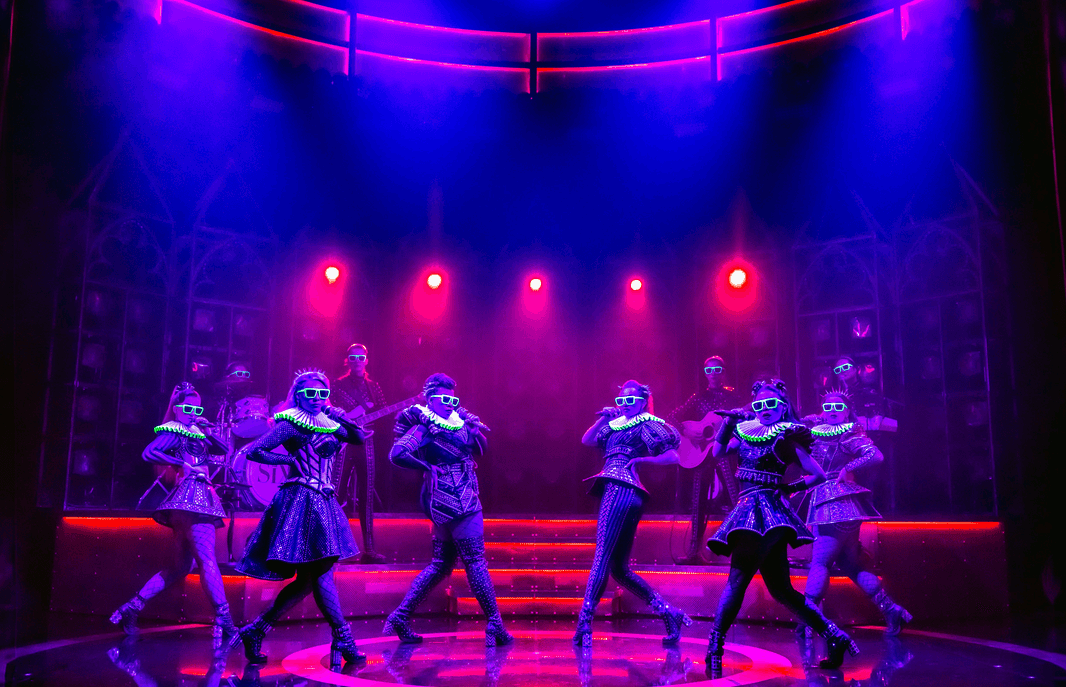
Lord shares: “I remember our director saying, if you can hear like one child come out of the show singing ‘We’re one of a kind, no category/ Too many years lost in his story,’ like they might not actually think about what they’re singing, but I think the show’s gonna be around for such a long period of time that when they are older and they understand what we’re singing, it’s just so beautiful.”
“It’s so smart, the way that they’ve turned it into a pop concert of pop stars, because of the way that famous women today are objectified, sensationalized and shallowed-out for the media as icons instead of women,” explains Tresvalles. “It’s exactly like how the queens were objectified and hollowed out for their countries. They’re icons, in the way that the queens were icons instead of real women.”
“Pop culture for our generation is what we grew up with. It’s such a good vessel for us to tell the stories of these women, because at the time, they were public figures too,” adds Kerr. “So I think that’s a really interesting dynamic and juxtaposition between pop stars and the queens back in their day.”
Six Queens Reclaim Their Story
SIX is presented as a type of metatheatre—a show within a show, where characters are aware of the presence of an audience. Here, the queens are dead: the stage is a kind of limbo, the setting to an afterlife show where they prove which one of them deserves to “win” the title of queen based on how miserable their lives were with Henry VIII. They put each other down, measuring their worth as the king’s tortured wives, yet later realizing—with the help of Catherine Parr’s sobering speech—that comparing the pains he inflicted is a futile exercise that ultimately overshadows their talents and individuality.
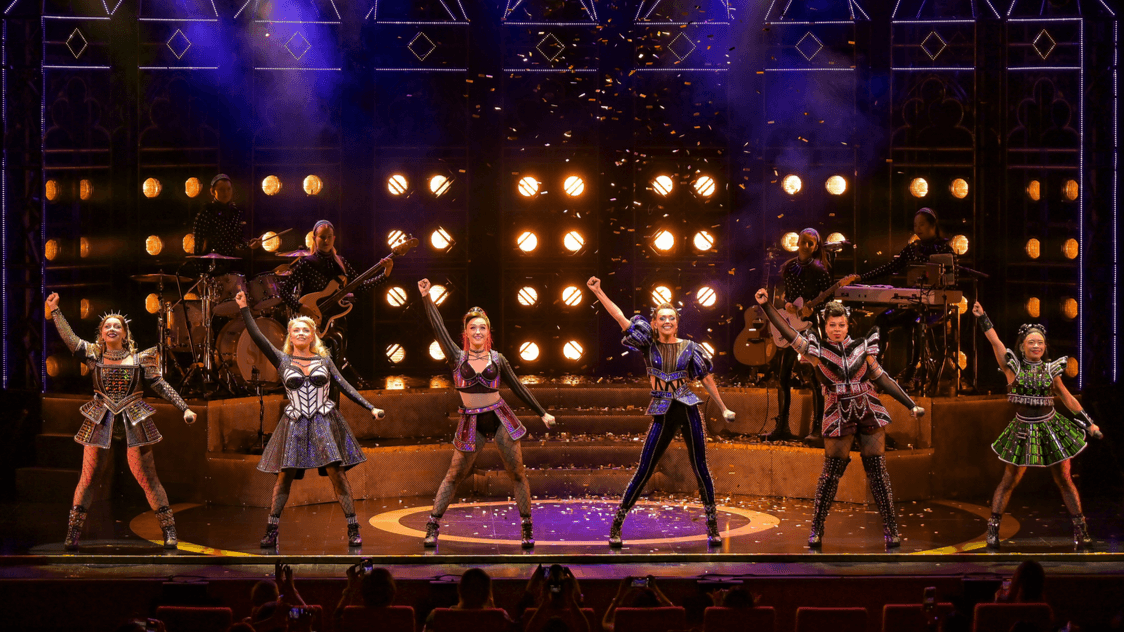
As the opening song “Ex-Wives” goes, these girls have spent too many years lost in Henry VIII’s story, reduced to the famous school rhyme “Divorced, Beheaded, Died; Divorced, Beheaded, Survived.” Being a modern piece about historical figures, we will never know for certain exactly who these women were as people, or what they felt about their circumstances. Regardless, SIX does a brilliant job of giving them a voice.
In the musical’s closing song “Six,” the queens gather to belt out a re-imagined medley of their lives, thinking of alternate realities and happier endings. It is fiction or fabrication, but isn’t that the power of art? As Joan Didion once wrote in her essay “The White Album”: “We tell ourselves stories in order to live.” Even in death, these queens get a second chance at life, and they are not going to waste a moment of it.
SIX The Musical runs for a limited season until October 20, 2024 at The Theatre at Solaire. For tickets, visit TicketWorld PH.
Photos by Excel Panlaque of KLIQ, Inc. (unless stated).
